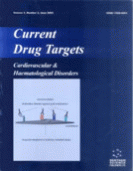Abstract
Statins have emerged as a highly efficacious class of drugs in the prevention of cardiovascular events. The primary mechanism of its cardioprotective effect is likely through its effectiveness in lowering serum lipids, particularly the low density lipoprotein (LDL) fractions. Recent studies suggest that statins also confer direct beneficial effects on the vascular cells in the attenuation of the atherogenic process through a variety of mechanisms. It remains the current dogma that oxidative modification of the LDL particles in the vessel wall plays a critical role for these lipoprotein particles to intiate the atherogenic cascade. The current failure of a number of antioxidants, which includes vitamin E, to favorably impact on the cardiovascular outcome in large scale clinical trials attests to the complexity of the oxidation processes in biological systems. In this review, we will highlight the current advances in a number of endogenous pro-oxidative and anti-oxidative systems in how they contribute to the net oxidative stress and how statin drugs may modulate this complex array of pro- and anti-oxidative processes.
Keywords: cardioprotective, lipoprotein, atherogenic
 2
2













